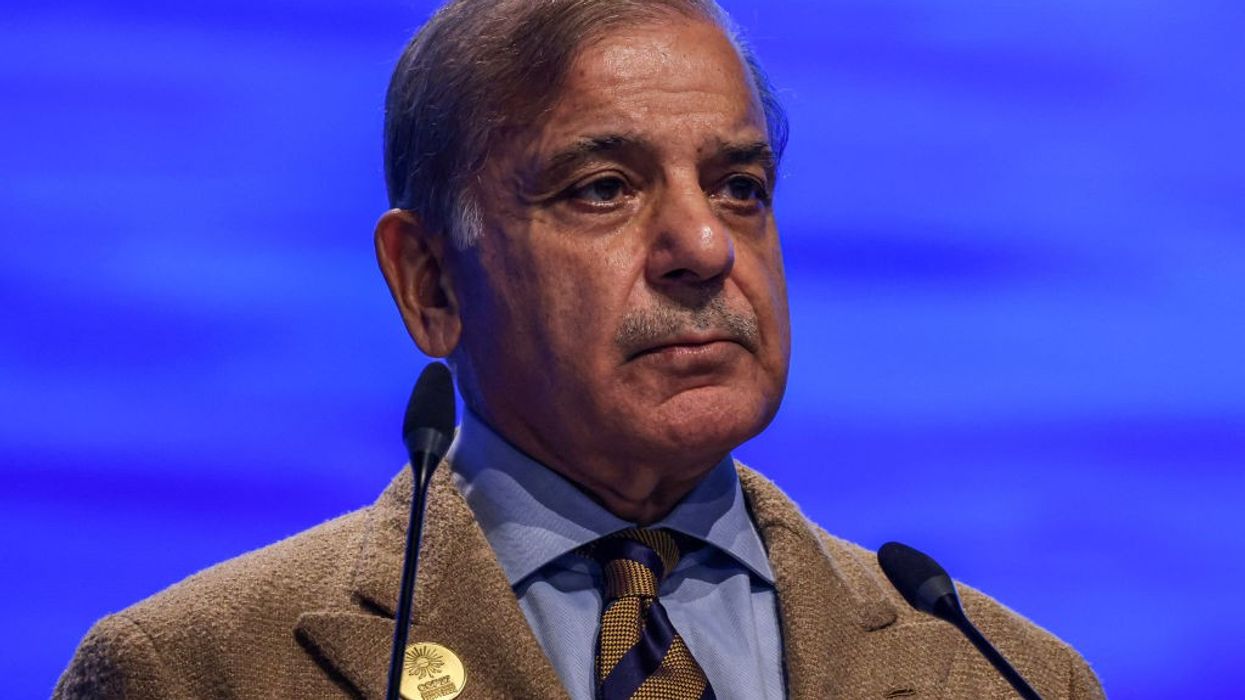Pakistan's Prime Minister Shehbaz Sharif said Friday the government would have to agree to IMF bailout conditions that are "beyond imagination".
An International Monetary Fund (IMF) delegation landed in Pakistan on Tuesday for last-ditch talks to revive vital financial aid that has stalled for months.
The government has held out against tax rises and subsidy slashing demanded by the IMF, fearful of backlash ahead of elections due in October.
"I will not go into the details but will only say that our economic challenge is unimaginable. The conditions we will have to agree to with the IMF are beyond imagination. But we will have to agree with the conditions," Sharif said in televised comments.
Pakistan's economy is in dire straits, stricken by a balance of payments crisis as it attempts to service high levels of external debt, amid political chaos and deteriorating security.
The country's central bank said Thursday its foreign exchange reserves had dropped again to $3.1 billion, which analysts said was enough for less than three weeks of imports.
Data on Wednesday showed year-on-year inflation had risen to a 48-year high, leaving Pakistanis struggling to afford basic food items.
Bowing to pressure
Ahead of the IMF visit, Islamabad began to bow to pressure with the prospect of national bankruptcy looming.
The government loosened controls on the rupee to rein in a rampant black market in US dollars, a step that caused the currency to plunge to a record low. Artificially cheap petrol prices have also been hiked.
The world's fifth-biggest population is no longer issuing letters of credit, except for essential food and medicines, causing a backlog of thousands of shipping containers at Karachi port stuffed with stock the country can no longer afford.
"Accepting IMF conditions will definitely increase prices, but Pakistan has no other choice," analyst Abid Hasan told AFP. "Otherwise, there is a fear of a situation like Sri Lanka and Lebanon."
Rejecting conditions and pushing Pakistan to the brink would have "political consequences" for the ruling parties, but so will agreeing to IMF measures raising the cost of living, he said.
Political chaos
The tumbling economy mirrors Pakistan's political chaos, with former prime minister Imran Khan heaping pressure on the ruling coalition in his bid for early elections while his popularity remains high.
Khan, who was ousted last year in a no-confidence motion, negotiated a multi-billion-dollar loan package from the IMF in 2019.
But he reneged on promises to cut subsidies and market interventions that had cushioned the cost-of-living crisis, causing the programme to stall.
It is a common pattern in Pakistan, where most people live in rural poverty, with more than two dozen IMF deals brokered and then broken over the decades.




